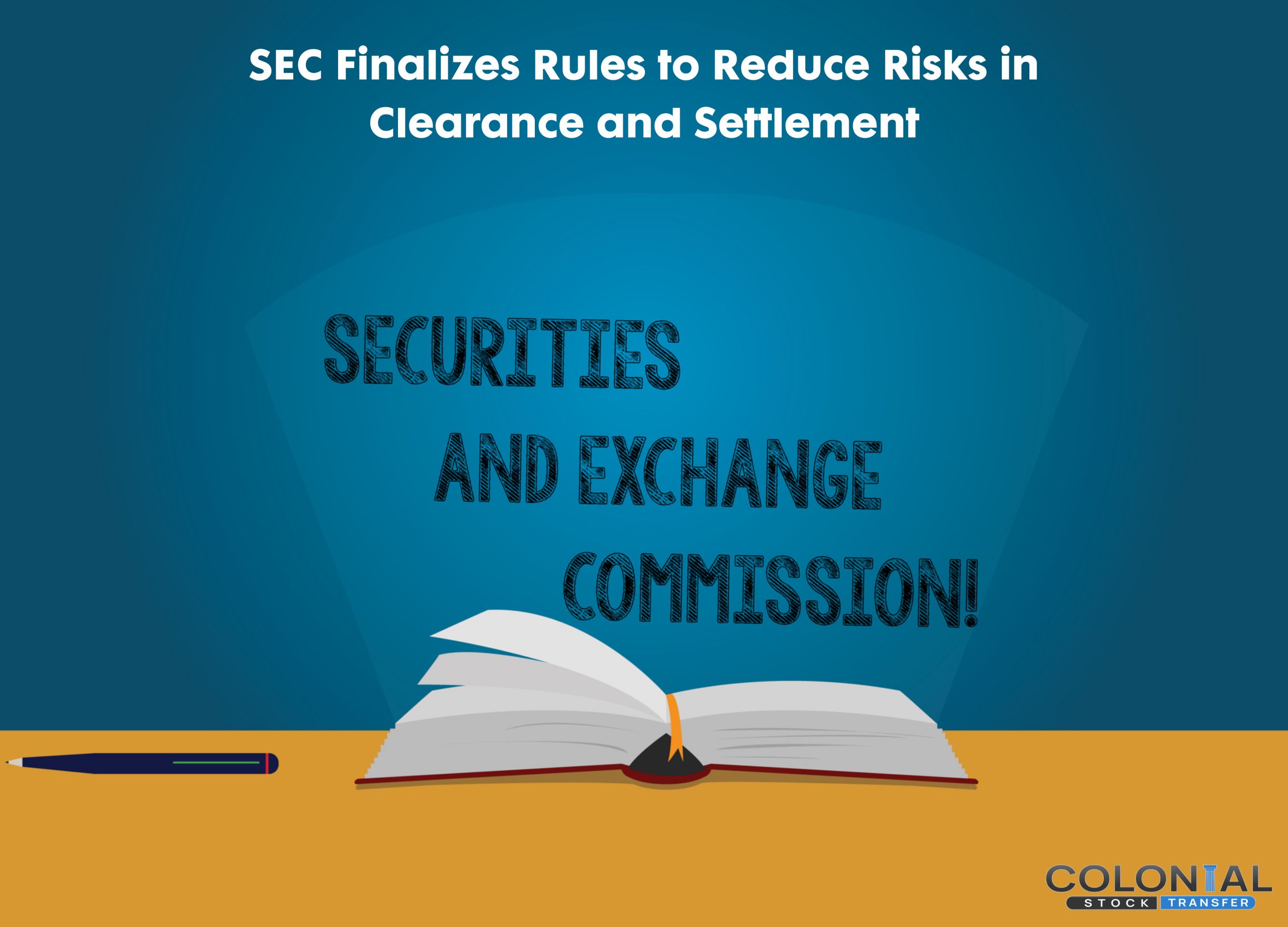
The Securities and Exchange Commission (SEC) has been working to enhance protections for investors and improve the operations of capital markets, and it recently announced that it had adopted rules to reduce risks and clearance and settlement. These changes will have an impact on most broker-dealer transactions, the processing of institutional trades, and recordkeeping requirements that apply to various investment advisors.
The rules are designed to reduce the amount of time between the execution of a transaction and its settlement, which should increase investor protections and improve capital efficiency. During the COVID-19 pandemic, there were significant periods of instability, and irregular trading contributed to market turmoil, particularly during January 2021. The SEC was concerned that these revealed possible vulnerabilities in the securities market, which prompted the SEC to make an effort to reduce the standard settlement cycle, which should mitigate potential risks moving forward.
What Are the New Rules Changes?
There are a number of rules that will go into effect. They include:
- The standard settlement cycle for most securities transactions will be shortened from two business days after the trade (T+2) to one business day (T+1).
- The standard settlement cycle for separate firm commitment offerings after 4:30 PM ET will also be shortened from four business days after the trade (T+4) to two business days (T+2).
- New requirements will be placed on broker-dealers and registered investment advisors regarding the processing of institutional trades.
- New requirements will also be applied to clearing agencies that serve as central matching service providers (CMSPs) to facilitate straight-through processing.
It remains to be seen what type of impact these changes will have on the market, but the goal is to provide investors with additional protection while also streamlining daily operations for investment advisors and broker-dealers.
The SEC Reviewed All Comments Carefully and Saw Clear Support
After the SEC proposed the new rules changes, a public comment period was opened, allowing people to comment on the impact of the new rules. In total, the committee received more than 300 comments, according to Haoxiang Zhu, Director of the Division of Trading and Markets. He stated that, overall, the comments demonstrated obvious broad public support for the new proposals, particularly as they relate to the shortening of the settlement cycle.
He believes that the shortening of the settlement cycle will provide further protection for investors, which will reduce risk and increase operational efficiency. By reducing risk to investors, there should be broader confidence in the markets as a whole, which should make it easier for people to access the information they need to decide which trades are right for them.
He also saw strong support for requiring broker-dealers to have contracts or policy procedures to achieve same-day applications. The goal is to further shorten the turnaround time to make it easier for investors to access the information they need. There was also public support for amendments to record-keeping requirements for investment advisors, who should now be required to keep detailed records of confirmations and affirmations. Broadly, the division believes that these additional regulatory steps are necessary to ensure that institutional transactions are processed appropriately.
A Closer Look at the Settlement Cycle
According to Jessica Wachter, Chief Economist and Director of the Division of Economic and Risk Analysis, the settlement cycle spans the time between the execution of the trade, when the buyer delivers the cash for the trade, and when the seller delivers the securities. The goal is to shorten this time as much as possible to reduce settlement obligations.
If the sediment cycle is too long, it allows prices to move, which could increase the risk of the transaction. If the price moves too much, the counterparty might not be able to meet its obligations, which can contribute to market turmoil.
The overall belief is that by shortening the settlement cycle to reduce the risk that the parties take on, investor confidence in the markets will improve, and market turbulence will be less. If there is less time for the prices to move during the settlement cycle, there is a lower risk to the counterparty, which should reduce margin obligations. If margin obligations are reduced, then the costs for market participants will come down as well.
What Are the Benefits of New Requirements on Central Matching Service Providers?
The final version of the rules will require CMSPs to establish, implement, maintain, and enforce procedures and policies related to straight-through processing. They will also be required to submit an annual report to the SEC that describes the progress they have made with quantifiable numbers to ensure compliance with the new set of regulations.
According to SEC Chair Gary Gensler, this rule “will reduce latency, lower risk, and promote efficiency as well as greater liquidity in the markets.” He went on to discuss that this new rule will address one of the biggest areas of concern the commission had following the events of 2021, adding that, “Taken together, these amendments will make our market plumbing more resilient, timely, orderly, and efficient.”
Now, it remains to be seen how these rules will be implemented, and it is essential for every business entity to partner with a professional that has experienced navigating these rule changes and can help them place their companies in a position to comply with these new rules. That way, they can reduce their regulatory liability and ensure that they act in their best financial interests.
Staying Compliant with your Stock Transactions
At Colonial Stock Transfer, we can help issuers successfully maintain turnaround times and compliance with their most important stock transactions regarding this rule through our SEC-compliant stock transfer agent services.
If you would like to learn more about how we can help you, contact us today to get the process started.




